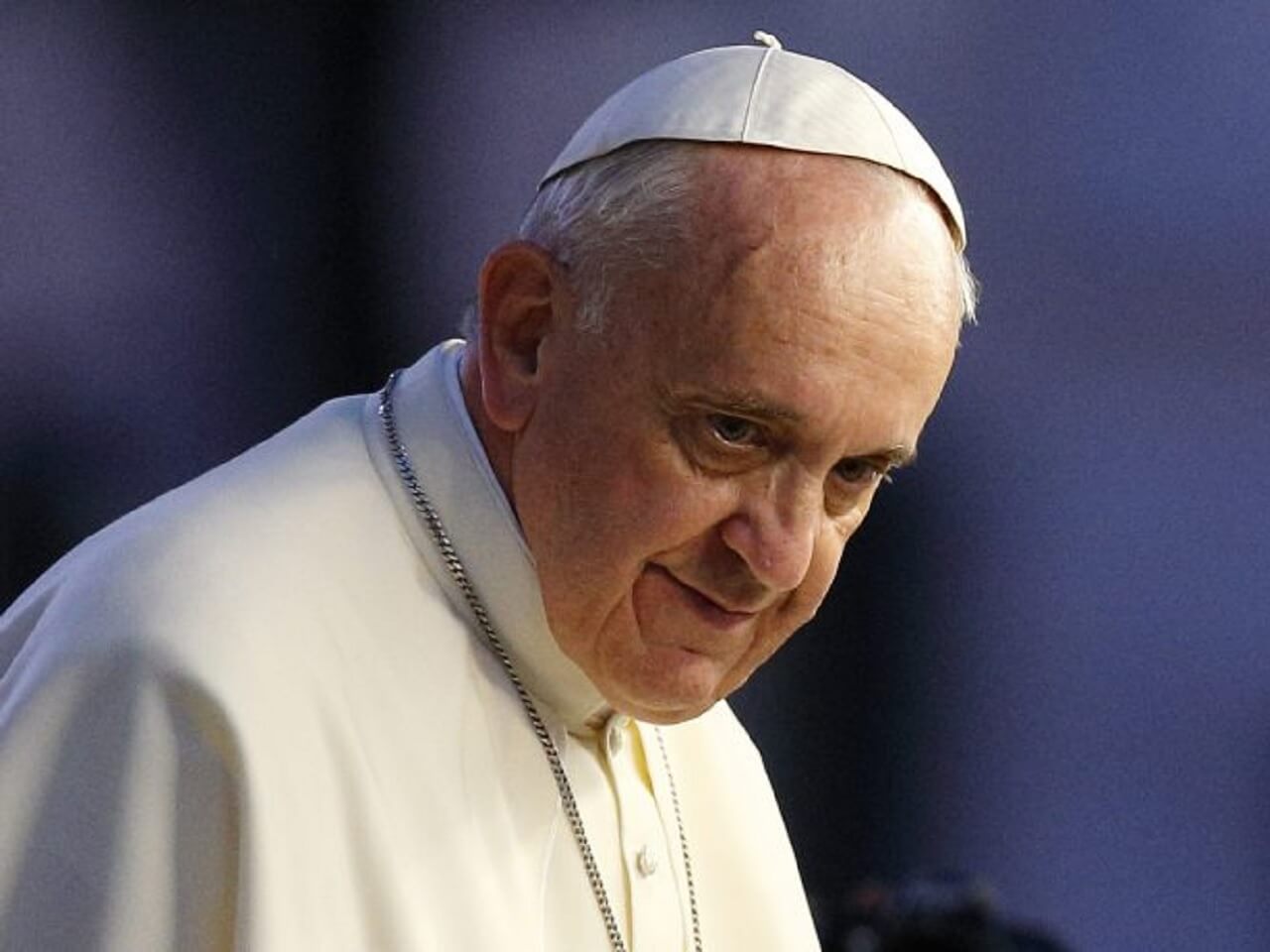By now everybody in the world, or so it seems, knows about the damning accusations made by the former apostolic nuncio to the United States, Archbishop Carlo Maria Viganò from Italy, implicating a number of bishops and cardinals, even the pope. Viganò, in his 11-page written testimony, calls on Pope Francis to resign: “Pope Francis must be the first to set a good example for cardinals and bishops who covered up McCarrick’s abuses and resign along with all of them.”
How can Pope Francis avoid resigning?
Given the clear call by Archbishop Viganò, there are only two possible replies. Either Pope Francis resigns or he doesn’t. What happens if he doesn’t resign? How can he justify not resigning? Pope Francis can claim that the testimony by Archbishop Viganò is flawed, entirely untrue at least in regard to himself. He can claim that he was not aware of whatever Viganò says he was aware of, and the conversations the archbishop mentions never happened. In this case, it’s the pope’s word against the word of one lone archbishop (so far). The pope will announce a thorough investigation into all the claims made by Viganò, and, after a little while, a few heads will roll. This will certainly include Cardinal Wuerl, who, in accordance with canon law, handed in his resignation letter two years ago, when he turned 75.
What about the next conclave?
The second scenario – Pope Francis resigns – can develop into two different directions. Pope Francis created a significant number of new cardinals – 59 of which can vote in a conclave as of today. One hundred twenty-four cardinals are eligible to vote, in total, even though Pope John Paul II decreed the limit to be 120 cardinals (Universi Dominici Gregis, 33). How many of those made cardinal by Pope Francis are really on board with the direction in which he’s trying to take the Church? Some are easily grouped with Francis, like Cardinal Tobin of Newark, New Jersey; Cardinal Cupich of Chicago, Illinois; and Cardinal Baldisseri, secretary-general of the Synod of Bishops. On the other hand, certain people made cardinal by the current pope are not to be counted among his supporters. Think of Cardinal Müller, former head of the Congregation for the Doctrine of the Faith.
Forty-seven bishops were created cardinal by Pope Benedict XVI, but it should be known that not all of them, perhaps not even the majority, would actually support a new pope who is more in line with Joseph Ratzinger. Yes, there are Cardinal Burke of the Order of Malta; Cardinal Sarah of the Congregation for Divine Worship and the Discipline of the Sacraments; and Cardinal Woelki, archbishop of Cologne, who was one among the few German bishops opposed to the idea of giving communion to Protestant spouses of Catholics. At the same time, you can find people like Cardinal Wuerl of Washington and Cardinal Marx of Munich. Finally, Pope John Paul II is still responsible for 18 cardinals eligible to vote, most prominently Cardinal Schönborn, archbishop of Vienna, who tends to say whatever his given audience wants to hear, as well as support and defend whatever any given pope proposes – be it Wojtyła, Ratzinger, or Bergoglio.
Of the 124 cardinals, the majority are the great unknown. One would have to look into their publicly voiced opinions, the way they celebrate the liturgy, whom they associate with, and, if they have an actual diocese, and the state of their seminaries and schools, as well as mass attendance, frequency of confession, and other things. Only after an enormous amount of research would it be possible to say with relative certainty (we’re speaking about a divine institution, after all) whether or not the direction of Pope Francis would be continued by a new pope.
Will the conclave favor continuity with Pope Francis?
What happens if there is no majority in a conclave for the disciples of Francis? The most prominent opponent to a lot of what Pope Francis does is Cardinal Burke, who was bishop of La Crosse, Wisconsin and archbishop of St. Louis, Missouri before heading the Apostolic Signatura in Rome. Pope Francis demoted him and gave him an honorary position with the Order of Malta.
It’s unlikely for Burke to be elected pope. The cardinals will be afraid to elect someone from North America, because the media are sure to dig up every single speck of dirt that can be found, no matter how insignificant. The first reason is simply the desire for a scoop; the second is that Burke is a conservative, which almost nobody in the media would appreciate.
Other names come to mind, for instance Cardinal Müller, but it’s impossible to know if enough cardinals would rally around him. A new pope from Asia or Africa is not unimaginable. The idea would be to elect a person distant from the epicenters of corruption and depravity in the West. At the same time, many cardinals might be weary of electing someone they don’t know very well – the election of Bergoglio was a mistake some cardinals won’t want to repeat. Also, the better known cardinals from these two continents are a mixed bag, at best, ranging from Cardinal Sarah on the one hand to Cardinal Tagle on the other. The spectrum may well extend even farther, given our lack of knowledge about most cardinals.
What’s to be done now?
The scenarios outlined show that even if Pope Francis resigns, that doesn’t guarantee sound theology and a morally upright life for our hypothetical new pontiff. There’s a long way to go for the Church’s human element to be restored to something resembling holiness. A lot of trust has to be earned. It’s important for people in the Church to come forward and name names. Only then can the faithful make informed decisions regarding their shepherds. Above all, Catholics need to pray for a restoration of order, divine order, in the Church, as well as in society.


